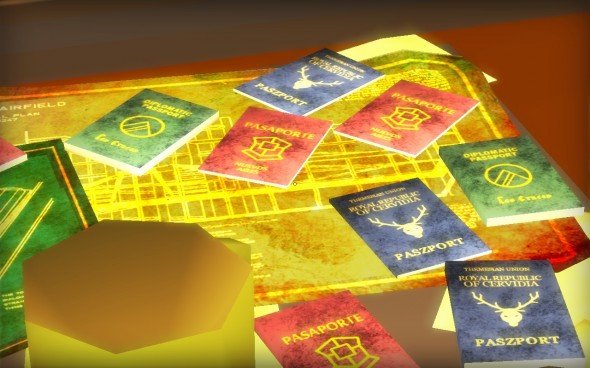Thirty Flights of Loving tells a better story in 13 minutes than most games do in 13 hours
When indie game designer Brendon Chung isn't making games like Flotilla and Atom Zombie Smasher, he's producing entries in his first-person Citizen Abel series. The last was Gravity Bone , a stylish short story about a spy. It's free, and you should probably play it.
The next game in the series is Thirty Flights of Loving, and you should definitely play it. It's another first-person short story, requires no previous knowledge of the series, and it's about a heist. The trailer is above. Without spoiling any of the story, I'm going to convince you why you should pay money for something you'll finish playing in less time than it took me to write this article.
TFOL is powered by the open source Quake 2 engine, and so runs as a standalone game. It's a first-person shooter where you never fire a gun. It's about a heist, as noted, but what makes it remarkable is how it tells its story.
Yeah, I know. Story . There's nothing more tedious to hear someone wax on about, but stick with me.
Gravity Bone was widely praised, particularly for a moment near its end in which the player tumbles from a building ledge and is presented with flashes of their prior life: a car bombing, a highway chase, an olympic sprint. It gave the game this wonderful sentimental feeling, and montage is a technique not much used in games.
Thirty Flights of Loving expands that use of montage to its entire story. You never actually see the heist you and your team are carrying out. Instead, TFOL is about the days leading up to it, the people you're carrying it out with, and the terrible aftermath. Events happen out of order, the clock leaps around hours at a time, and you piece together the story as you play.

We're normally so quick to condemn games that take the language of cinema and cram them in to a medium that's meant to be interactive, but Thirty Flights of Loving uses its borrowed techniques so well that it makes its traditional narrative feel more gamey, not less. It's a first-person game as Scott Pilgrim director Edgar Wright might make them.
The biggest gaming news, reviews and hardware deals
Keep up to date with the most important stories and the best deals, as picked by the PC Gamer team.
It uses montage to tell an incredible amount of story in its short 13 minutes. It uses it to fill in character backstory with stylish, funny jumpcuts. It uses it to tell a linear story while still letting players navigate its levels in ways that they choose, without ramming them in to a dead-end.
There are plenty of other reasons to play the game, including the great blockheaded art style, the Latin American-inspired music, the playfulness of its environments, and that the story is exciting and fun even aside from how its told. But the sense I get when playing it is that it's made by someone who has spent a long, long time thinking about how to tell linear first-person stories, and who has found a new way to do it better than anyone else.
Right now the only way to get the game is to back the Idle Thumbs podcast on Kickstarter for $30. If you're not already a fan of Idle Thumbs, you probably won't want to pay that amount just for Thirty Flights of Loving. I think it's worth all the money in the world, but I accept that you probably want to save some of yours for food and shelter.
If you are a fan of Idle Thumbs though (I've never listened to it) and are going to back it anyway, then go for at least the $30 reward tier. For everyone else, Thirty Flights will be released sometime later, for a presumably much smaller price. Sooner or later, make sure you play this game.

